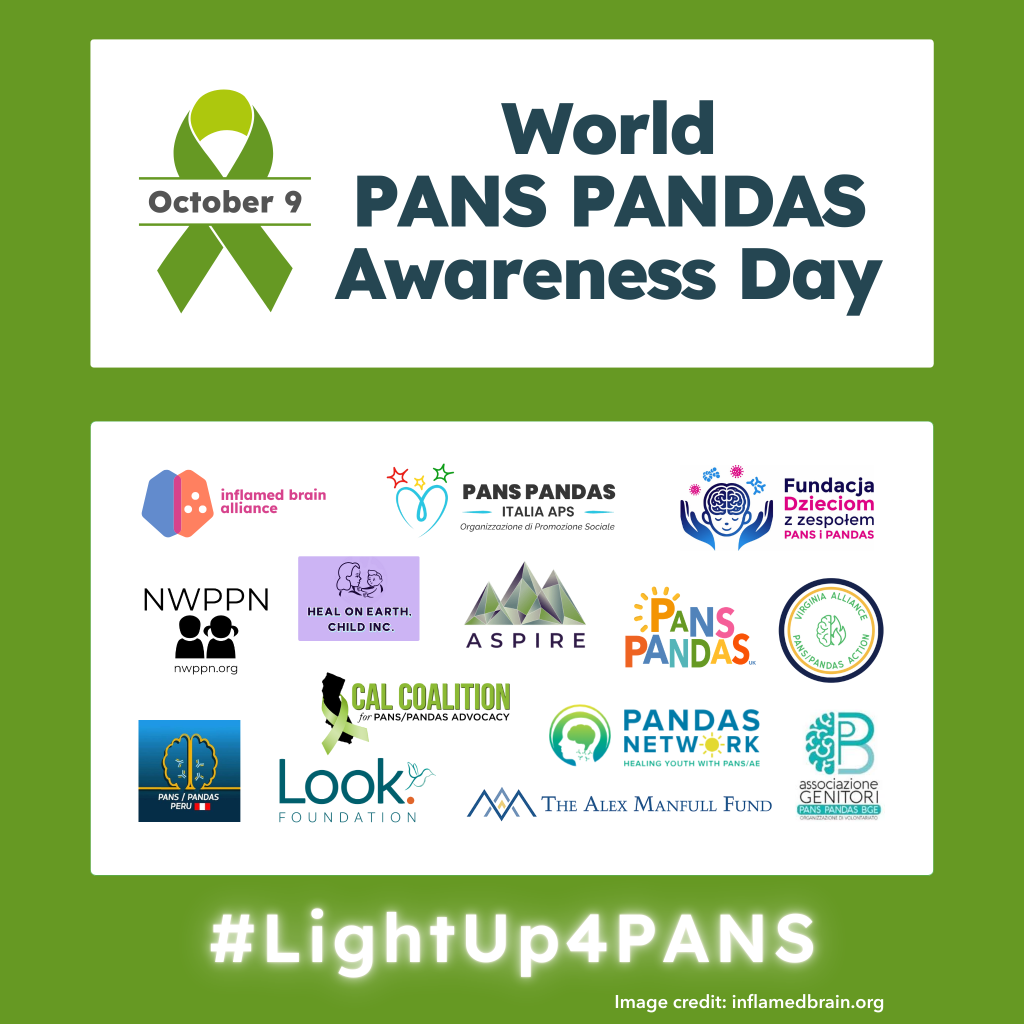World Pans and Pandas Awareness Day on 9th October 2025

The London PANS Clinic presents: PANS/PANDAS Awareness Day 2025 – Mini Symposium.
Join for a focused symposium designed to inform and empower parents, doctors, and allied health professionals with the latest updates and breakthroughs in the field of of PANS (Paediatric Acute-onset Neuropsychiatric Syndrome) and PANDAS (Paediatric Autoimmune Neuropsychiatric Disorders Associated with Streptococcal Infections).
Reserve your place today by clicking the link below:
This global event is marked by various initiatives:
Landmark Lighting Campaign (#LightUp4PANS): Iconic sites across the UK and Ireland will be lit up in green, including:
Normanton Church at Rutland Water (local to you!) is participating in the #LightUp4PANS campaign on 9th October.
PANS and PANDAS are neuropsychiatric conditions. This means they are medical conditions which have both neurological (eg. difficulties with thinking or moving) and psychiatric (i.e.. mental health) symptoms.
PANS and PANDAS are often grouped together because they share lots of symptoms in common. Both conditions can begin quite suddenly, and symptoms may come and go over time.
Symptoms
People with PANS and PANDAS may experience a variety of different physical and mental health symptoms.
Such as:
- OCD
- Eating restrictions or severely restricted food intake
- Anxiety (heightened anxiety, separation anxiety, irrational fears, panic episodes)
- Tics
- Emotional lability and/or depression
- Irritability, aggression, and/or severely oppositional behaviours
- Behavioural (developmental) regression (increase in temper tantrums, loss of age-appropriate language, clingy behaviour not related to anxiety)
- Sudden deterioration in school performance (due to difficulties with memory, concentration, hyperactivity, impulsivity, new deficits of visuospatial skills)
- Motor or sensory abnormalities (dysgraphia, clumsiness, tics, new sensory sensitivities to light, noise, smell, taste or texture)
- Insomnia and/or sleep disturbances
- Enuresis and/or urinary frequency
*Sometimes hallucinations and/or psychosis might be part of the symptoms experienced, however they are not officially part of the diagnostic criteria.
Remember that children with PANS or PANDAS may present with a different combination of symptoms, and that these symptoms may change over time. You do not need all the symptoms in the list to be diagnosed with PANS or PANDAS.
